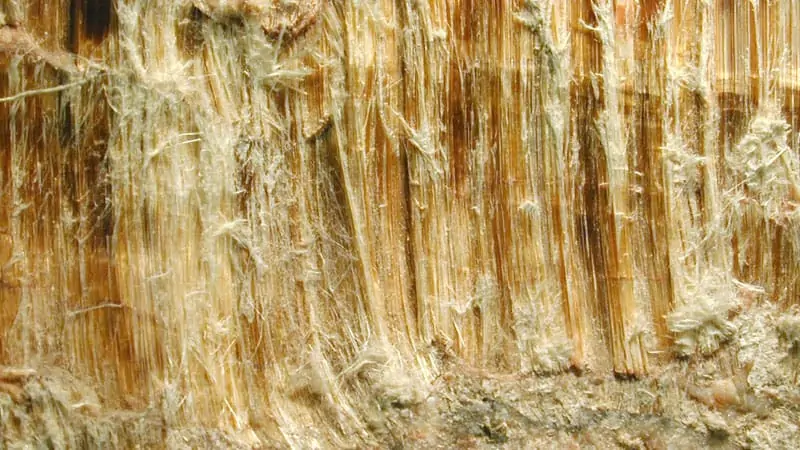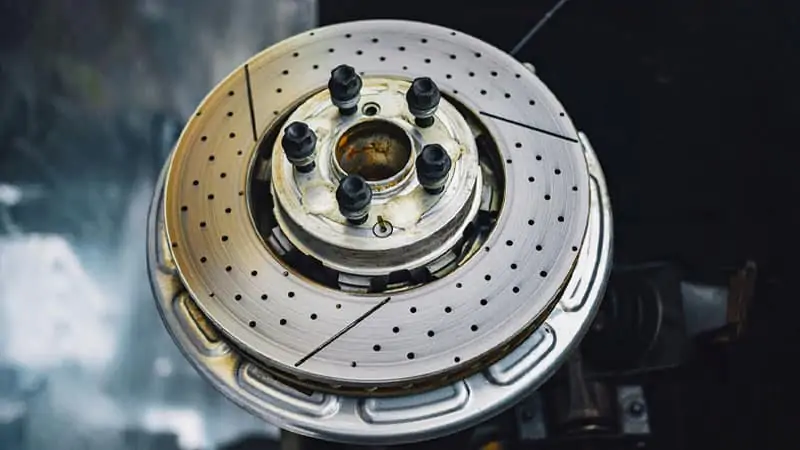Did you know that car repair workers are at the top of the list regarding asbestos poisoning and related illnesses? That’s because some components on your vehicle may have asbestos in them, and longer exposures can create tons of problems. That made me wonder, do all car brakes have asbestos?
In the early years of car manufacturing, almost every car brake had asbestos in its brake pads because it’s a material very resistant to heat. However, asbestos has been banned in most countries, although some brake pads and other systems still use some asbestos.
For instance, in the US, pads are still allowed to contain up to 35% asbestos. While production that included asbestos in Europe stopped in the early 2000s, your brake pads might’ve been replaced with the ones using asbestos, so you should always be careful if you plan to touch your brakes in any way.
What Is Asbestos?

Asbestos is a mineral that can be found in nature. Manufacturers loved using it because of its resilience to high temperatures, water, chemicals, and even sound. The composition of asbestos consists of millions of tiny fibers that are bound together.
Due to its physical properties and resistance to external elements, asbestos had been highly used in construction, road traffic (cars, motorbikes, etc.), air and sea traffic (planes, helicopters, ships), and in fireproof clothing, usually made for firefighters.
However, the problem with asbestos was discovered long after it’s been put in use for decades – asbestos is highly toxic and extremely dangerous if asbestos fibers get inhaled, swallowed, or enter the organism any other way.
When that truth came to light, factory workers and millions of others sued the companies that produced items containing asbestos because longer exposures lead to all kinds of health issues, even death.
While asbestos is in its solid-state, it’s not dangerous to our health. However, when it starts to get worn out and crumble (turning into small dust particles, like with the brake pads), that’s where it becomes extremely dangerous because you can easily inhale it without even knowing it.
Do Car Brakes Have Asbestos?
According to an International Journal of Environmental Research and Public Health report in 2018, around 250 thousand people die from asbestos exposure each year. Over 90% of those deaths come from workplace exposure to asbestos. And, the workers that suffer the most out of that group? Car mechanics.
As I mentioned before, companies loved using asbestos before it was banned (or at least partially banned) due to its great physical properties, such as extreme heat resistance.
Car brakes use friction to slow down your vehicle, and friction at that speed creates an incredible amount of heat. That’s why car brakes usually had a very high percentage of asbestos in them – over 50%.
But, when it was discovered just how bad it is for our health, most countries banned the production of brake pads and other vehicle components with asbestos. However, countries like the United States and some Asian states still allow asbestos in car manufacturing (up to a certain percentage.
If you have a newer car model – especially if it’s manufactured in Europe – your car brake pads don’t contain asbestos. However, brake pads get worn out after a while and have to be replaced, so you can’t be sure if the replacement pads don’t contain asbestos.
That’s why car mechanics still get asbestos poisoning. As you drive and use the brakes on your car, the asbestos dust particles and fibers aren’t dangerous for you as a driver, as the dust gets trapped inside the brake housing.
However, when a mechanic opens the housing to look at the brakes, it releases that toxic dust. When inhaled, it can cause serious health problems, some of which can lead to a painful death.
What Can Happen If You’re Exposed To Asbestos?

The biggest problem that asbestos can cause is mesothelioma. It’s a unique form of cancer that can develop in the lungs, heart, abdomen, and testicles (among men). It’s extremely hard to cure or aid in any way because it’s very hard to diagnose before it already spreads on other organs and body parts.
That’s why the mortality rate among mesothelioma patients is very high. If it’s caught and diagnosed early, it can be solved, or at least the patient’s life can be prolonged for some time. Mesothelioma is known to happen only after asbestos exposures.
It happens after you inhale the asbestos fibers, which can’t get out of the body as they get lodged inside organ tissue. They continually damage healthy tissue, and sometimes, the body reacts inappropriately, causing cancerous tumors.
If the body doesn’t develop cancer, you can get asbestosis. The damaged organ tissue causes scars and breathing problems after the fibers get trapped in the lungs. The lungs get weaker and more painful progressively, causing shortness of breath, fatigue, and painful coughing.
In other cases, you are at high risk of lung cancer after exposing yourself to asbestos. You can also get pleuritis, pleural plaques and effusions, COPD (chronic obstructive pulmonary disease), and many more problems that can ultimately lead to a fatal outcome if not treated properly.
How To Protect Yourself From Asbestos In Your Brakes?
If you aren’t a mechanic, or if you don’t touch your brakes without professional help, it’s highly unlikely you’ll suffer from asbestos exposure. However, if you do end up repairing or cleaning your baking system, you should follow some guidelines.
You should never use air compressors for cleaning the brakes, as they’ll disturb the asbestos dust and get the fibers up in the air. That means you should also never dust them, brush them, or disturb them in any other way that can get the dust in the air.
Avoid getting your face too close, and change clothes after you’re done. Using a face mask is also a good idea.
If you need to drill or cut some parts, make sure to use low speeds to limit the amount of dust getting in the air. Never have food and drinks near the working area, and use machinery with local dust collection or exhaust, especially if it has HEPA filtration.

